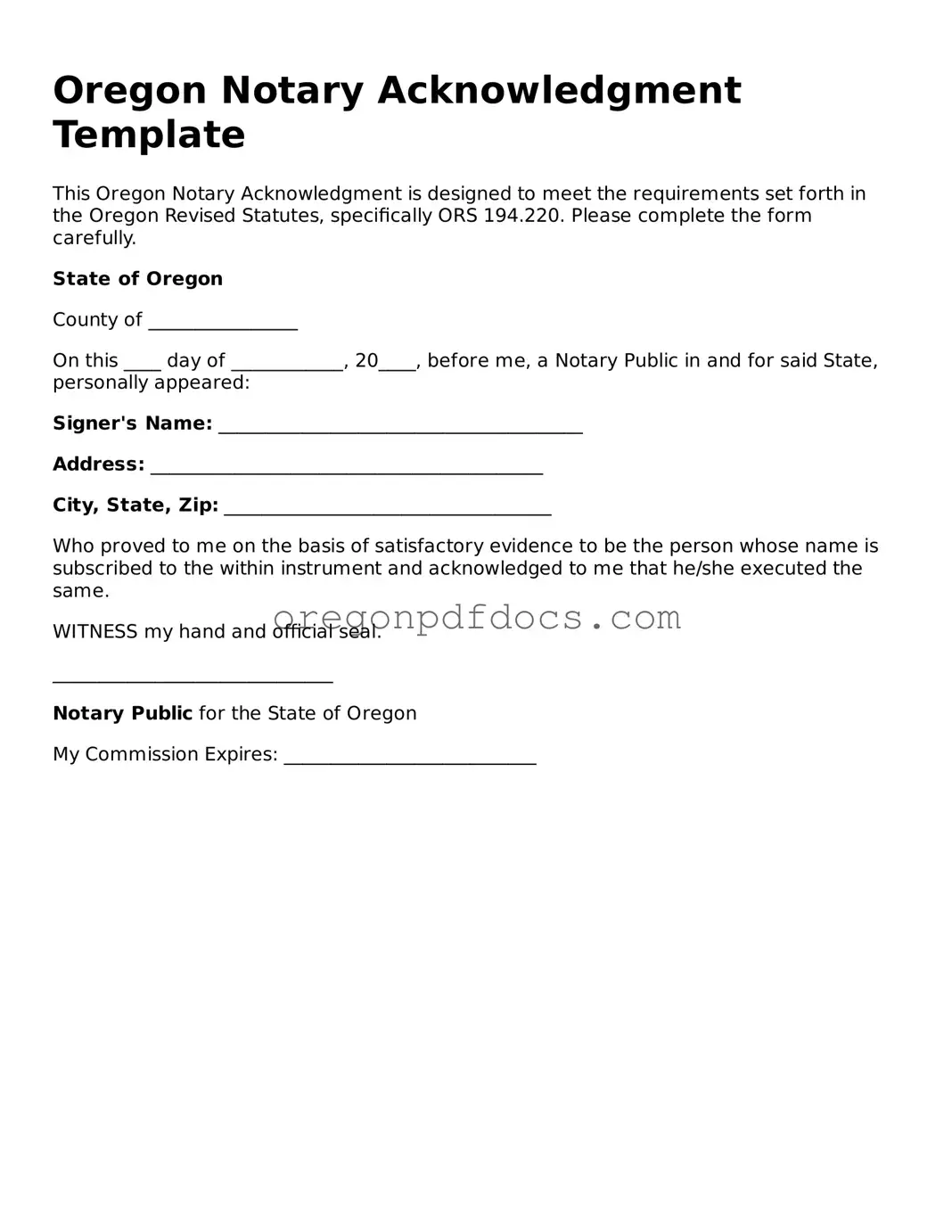Printable Oregon Notary Acknowledgement Document
The Oregon Notary Acknowledgement form is a crucial document that verifies the identity of a signer and confirms that they willingly signed a specific document. This form serves as an essential tool in ensuring the authenticity of legal documents, providing peace of mind for all parties involved. Ready to secure your documents? Fill out the form by clicking the button below.
Make My Document Online

Printable Oregon Notary Acknowledgement Document
Make My Document Online

Make My Document Online
or
Get Notary Acknowledgement PDF Form
One more step to finish this form
Finalize your Notary Acknowledgement online in a few easy steps.